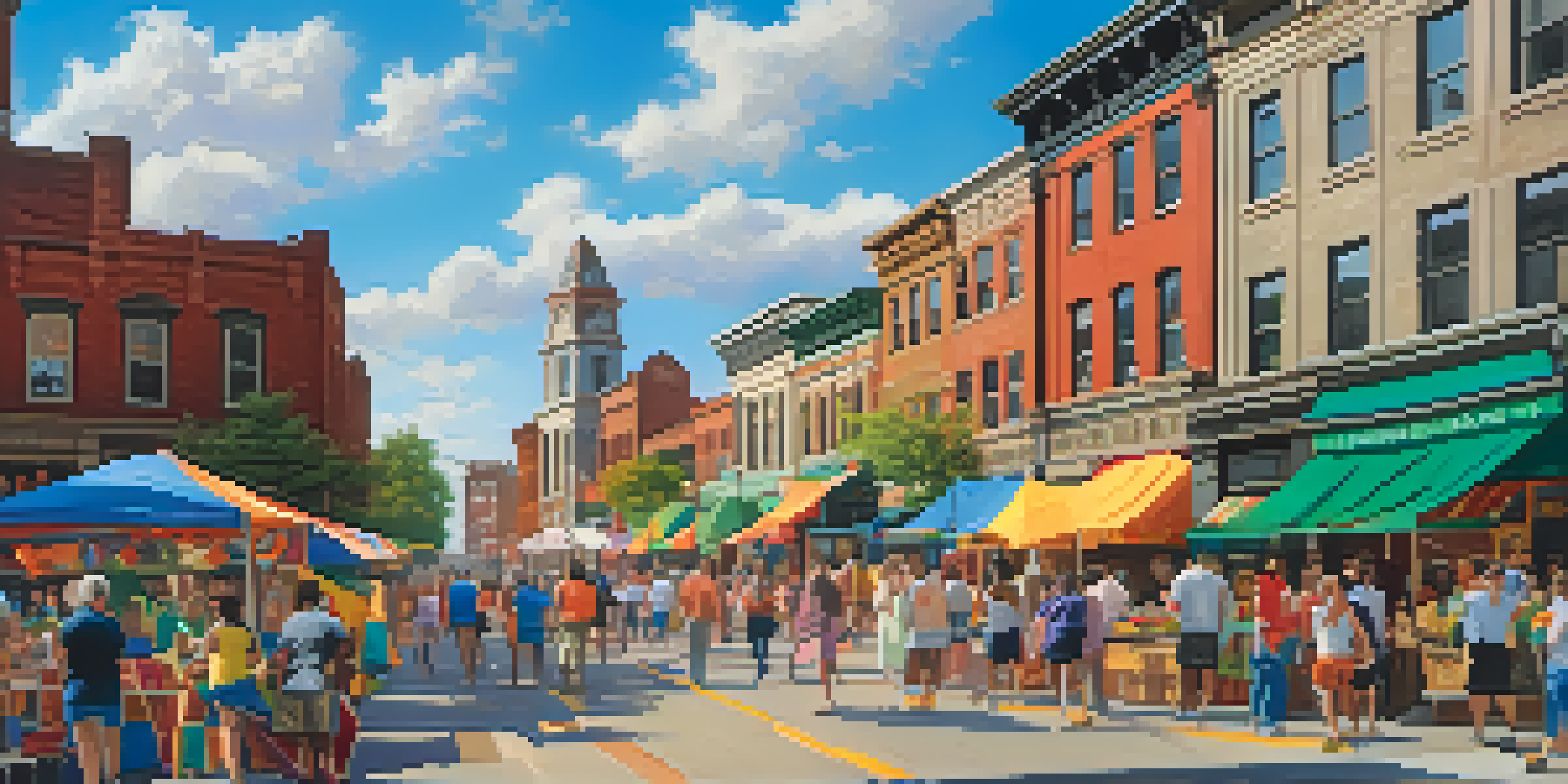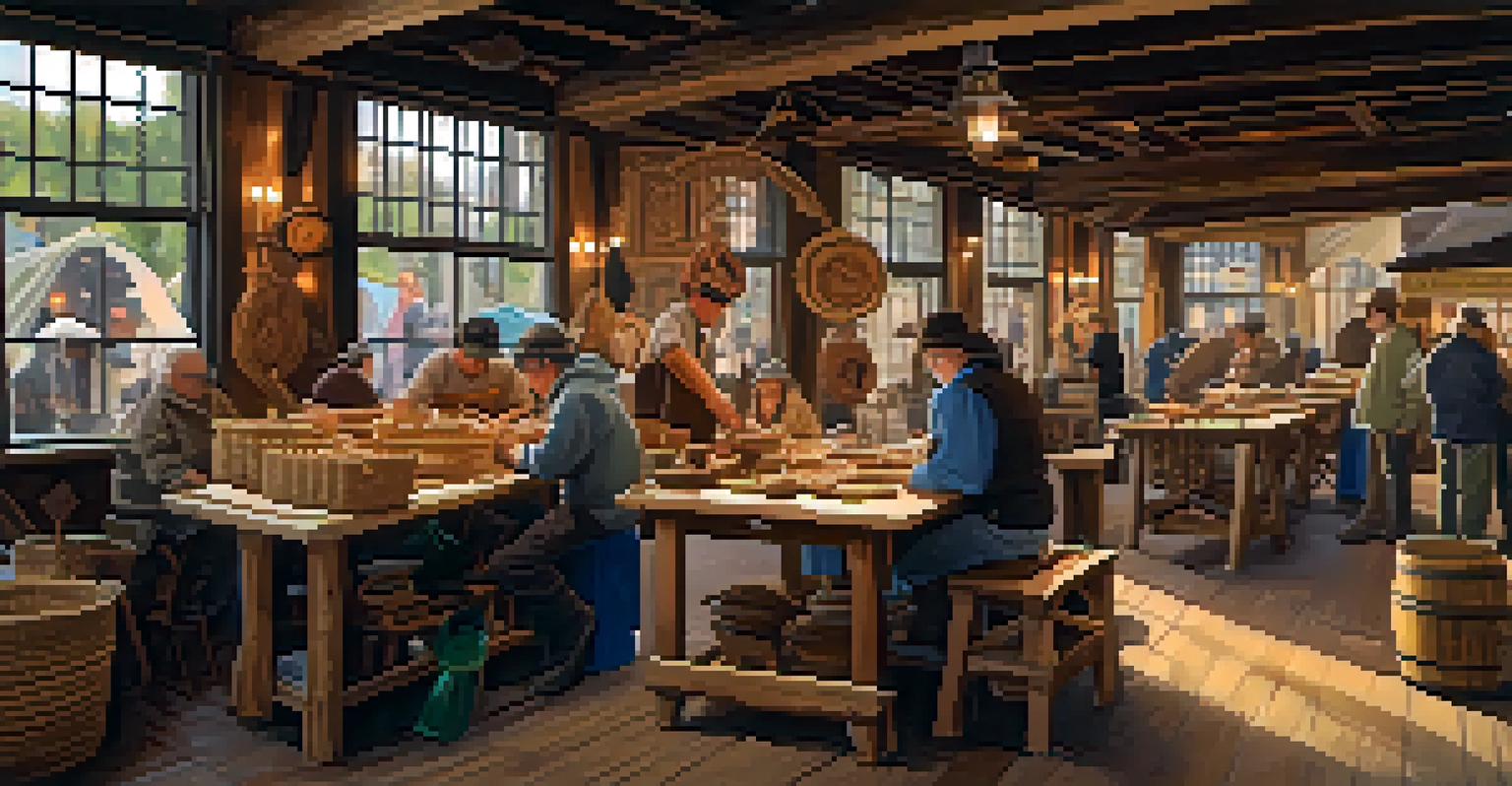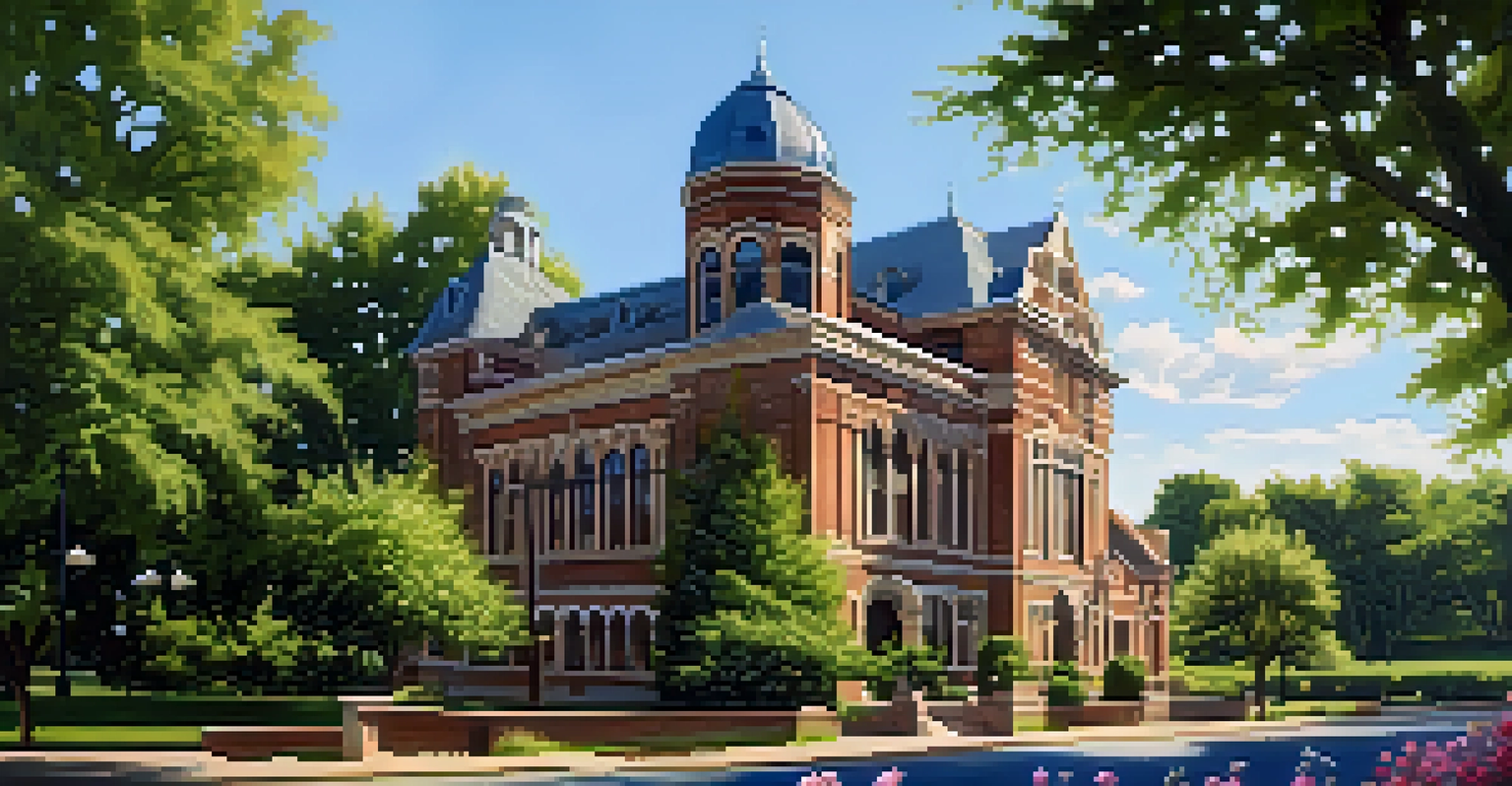Preserving Rochester's Cultural Heritage: Challenges Ahead

Understanding Rochester's Unique Cultural Landscape
Rochester, New York, is a city rich in history, home to diverse cultures that have shaped its identity over the years. From its roots in the flour milling industry to its vibrant arts scene today, the city's heritage is a tapestry woven from various influences. This unique blend makes preserving Rochester's cultural heritage not just important, but essential to maintaining a sense of community and identity.
Preservation is a form of empowerment. It gives people a voice in their own history and a stake in their future.
As the city evolves, it faces the challenge of balancing modernization with tradition. Many historical sites and cultural landmarks are at risk of being overshadowed by new developments. Thus, it's vital to recognize the significance of these places and the stories they hold, ensuring they remain integral to Rochester’s future.
Engaging with the community is crucial in this endeavor. Residents can help by sharing their stories and experiences, which enrich the narrative of Rochester's cultural landscape. This collective memory can guide preservation efforts and foster a deeper appreciation for the city’s heritage.
The Role of Local Organizations in Preservation
Local organizations play a pivotal role in the preservation of Rochester's cultural heritage. Entities like the Landmark Society of Western New York are dedicated to advocating for historical sites and educating the public about their importance. These groups often lead initiatives that raise awareness and funds for restoration projects.

Moreover, these organizations bring together volunteers and community members, fostering a sense of ownership over local history. By participating in preservation efforts, residents not only contribute to the cause but also form connections with their neighbors. This grassroots involvement can significantly enhance the effectiveness of preservation strategies.
Preserving Cultural Heritage is Vital
Rochester's diverse cultural identity relies on the preservation of its historical sites and stories.
However, these organizations also face budget constraints and competition for resources. It's essential for the community to support these efforts, whether through donations, volunteer work, or simply by attending events. Strong public backing can empower these organizations to continue their vital work.
Challenges of Urban Development and Gentrification
As Rochester continues to grow, urban development and gentrification pose significant challenges to preserving cultural heritage. New construction projects often prioritize profit over historical significance, leading to the demolition of cherished landmarks. This rapid change can dilute the city's unique character and displace long-standing communities.
The past is never dead. It's not even past.
Gentrification can also create tensions between new residents and those who have lived in the area for generations. As neighborhoods undergo transformation, the original cultural fabric can be lost or forgotten. Finding ways to integrate new developments while respecting and preserving historical elements is a complex, yet necessary task.
To address these issues, city planners must engage with local communities and consider their voices in development discussions. By prioritizing inclusive planning processes, Rochester can strive for a balance that honors its heritage while accommodating growth. This collaborative approach can help ensure that the city maintains its cultural essence amid change.
Education and Awareness in Cultural Preservation
Education is a cornerstone of preserving Rochester's cultural heritage. By teaching residents, especially the youth, about the city's rich history, we can foster a sense of pride and responsibility towards preservation. Schools and community programs can incorporate local history into their curriculums, encouraging students to explore and appreciate their surroundings.
Awareness campaigns can also play a vital role in highlighting the importance of cultural preservation. Events like heritage festivals or historical tours can engage the public and promote local heritage sites. These initiatives not only celebrate the past but also inspire collective action to protect it for future generations.
Community Engagement is Key
Active participation from residents enhances preservation efforts and fosters a sense of ownership over local history.
Collaboration between educational institutions and local organizations can amplify these efforts. By partnering on projects or events, they can create lasting impacts that resonate within the community. Together, they can cultivate an environment where cultural heritage is valued and actively preserved.
The Impact of Technology on Preservation Efforts
In today's digital age, technology offers exciting opportunities for preserving Rochester's cultural heritage. Digital archiving allows historical documents, photos, and artifacts to be stored and accessed online, making them available to a broader audience. This not only helps preserve the materials but also educates and engages those who may not have the chance to visit physical locations.
Social media platforms can serve as powerful tools for promoting local heritage and encouraging community involvement. Organizations can share stories, events, and preservation efforts, reaching a wider audience and building a network of supporters. Engaging the public through storytelling can create a sense of belonging and commitment to the preservation cause.
However, reliance on technology also comes with challenges, such as ensuring the digital preservation of materials. It's essential to invest in proper training and resources for those involved in these initiatives. By combining technology with traditional preservation methods, Rochester can create a multifaceted approach to safeguarding its cultural heritage.
Funding Challenges for Preservation Projects
Funding remains one of the most significant hurdles in the preservation of Rochester's cultural heritage. Many projects rely on grants, donations, and public funding, which can be inconsistent and unpredictable. This uncertainty can hinder long-term planning and lead to the neglect of vital preservation initiatives.
To combat these challenges, local organizations must become adept at securing funding from various sources. This can include applying for grants, hosting fundraising events, and building partnerships with businesses and civic leaders. A diverse funding strategy can provide a more stable financial base for preservation efforts.
Funding Challenges Hinder Preservation
Inconsistent funding sources pose significant obstacles to the long-term preservation of Rochester's cultural heritage.
Community involvement can also play a crucial role in fundraising. By rallying support and encouraging local residents to invest in their heritage, organizations can create a culture of giving that sustains preservation initiatives. Together, the community can work towards a common goal of safeguarding Rochester's cultural legacy.
The Future of Cultural Heritage in Rochester
Looking ahead, the future of Rochester’s cultural heritage depends on the collective efforts of its community, organizations, and local government. By acknowledging the challenges and actively working towards solutions, we can ensure that the city’s rich history is preserved for future generations. This commitment to heritage can foster a strong sense of identity and pride among residents.
Collaboration among various stakeholders will be vital in navigating the complexities of preservation. By working together, they can share resources, knowledge, and strategies to overcome challenges. This united front can help amplify the impact of preservation efforts and create a more resilient cultural landscape.

Ultimately, the success of preserving Rochester's cultural heritage lies in the hands of its residents. By engaging with their history, advocating for preservation, and supporting local organizations, the community can shape a future that honors its past while embracing the opportunities of tomorrow.